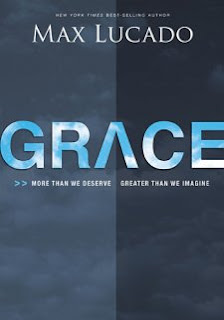Greater: Dream Bigger. Start Smaller. Ignite God’s Vision For Your Life by Steven Furtick looks to inspire learners to stop living mediocre lives and step into the life of greatness God has meant for them. Furtick provides both practical, theological and inspirational advice for believers to escape their a life of waste to one that is greater, greater than labels, greater than earthly success, greater than our own dreams. To show us how to live this greater life, Furtick relies on two chief illustrations. The first is the prophet Elisha who went from plowman to Israel’s most distinguished prophet of his day. The second is stories from Furtick’s own Elevation Church and the people that he does life with. Furtick directs our attention to Jesus, the ultimate example of one who lived a life using the principles Furtick has discovered to being greater.
The following is probably more of my thoughts on “Christian” publishing and not Greater persay. Why as a belief group that speaks living in freedom do we need so many “self-help” books. Furtick himself acknowledges that he could be seen as just another self-help book. My question is why does he need to address that issue? Let’s be honest, self-help books are ones we read, consider, and then forget about as we pick up the next title. I call it Generic Christian Book and they tend to have the themes of look to Jesus, throw off the bonds and live in freedom, do more for Jesus. Don’t worry they also tend to all give us the same recipe; have faith, pray, read your Bible, be nice to animals (okay I made that up). Honesty this is not about our authors but us as consumers. Publisher and authors are putting these Generic Christian Books out because we are buying and reading them, but as I look around are we living them with the swagger that says the Father loves me and I am free! Often, I think no.
With that being said, Greater is a text that I would drop into the category of Generic Christian Book. Yes, I like the use of Elisha. Yes, the books are well written. But I think a “mature” believer should have read much of this elsewhere or heard similar concepts from the pulpit. Greater should be of benefit to a new believer who needs to move past that old mediocre life and does not know how yet, but it is us “mature” believers that seem to need this sort of message again and again and again and again. Reading with a bad attitude, some of the examples from real life mentioned in the book did not impress me. And I was frustrated with impression given early in the book that one with deep faith who takes a deep risk will have a windfall soon after, especially when Furtick discusses in depth later in the book the difficulties walking out on faith will experience.
Honestly, I was probably pre-disposed to not be as open to Greater as others who will pick it up. I almost feel bad saying it but I see it as a trend within theBbody. Maybe I am reading too many Generic Christian Books improperly giving me the impression that we are staggering in our belief instead of strutting with confidence. As someone who reads a lot, I say let’s start listening and living the messages of a book like Greater instead of recycling and re-reading it’s concept that we need to live lives of greatness.
Review Copy Provided by Blogging for Books


